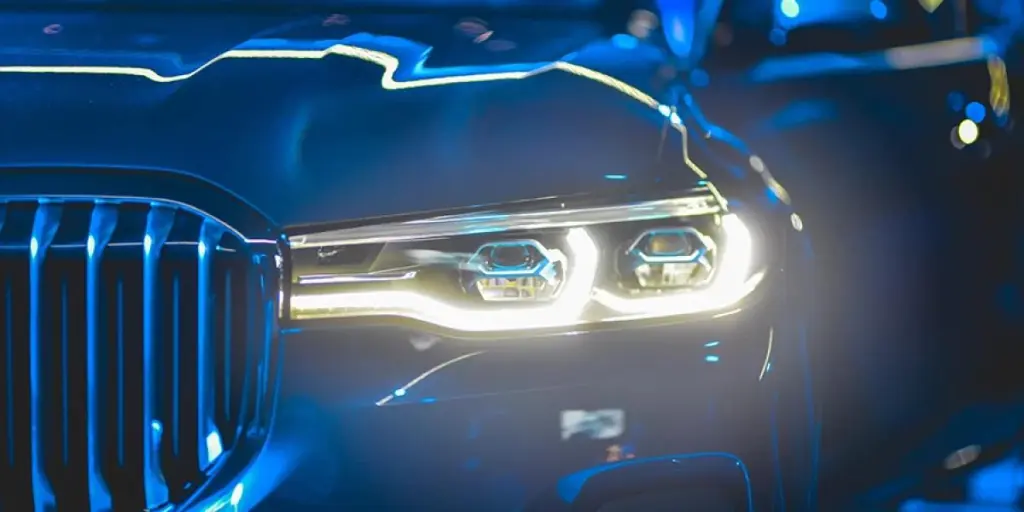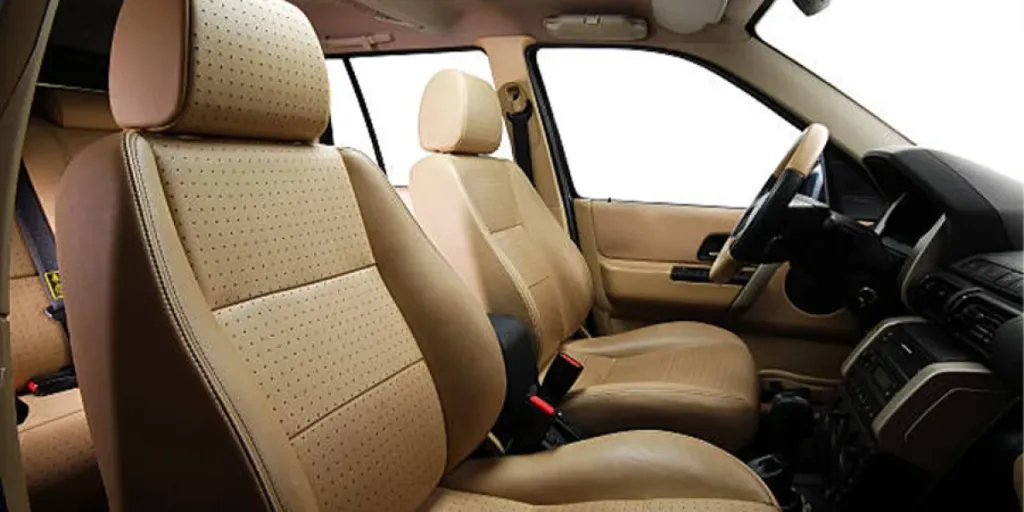Editor’s Note: After a nine-month absence from public view since he stopped posting on Weibo in early 2024, Li Xiang, founder of Li Auto, appeared in a live stream conversation with Tencent News tech writer Zhang Xiaojun. The focus of this discussion was not “cars,” but “AI.”
This relatively brief conversation offers insights into what kind of company Li Auto aims to be, Li Xiang’s strategic thinking, and even the potential direction of China’s automotive and AI industries.
Below is the transcript of the conversation:
01 AI Represents the Entire Future
Q: While others focused on pure electric vehicles, you started with range extenders. Now many are doing the same, yet you’re shifting to AI. Why?
A: Building cars is still essential. Electrification is the first half, and intelligence is the second. But I believe this intelligence isn’t traditional software intelligence; it’s true AI. This is the inevitable path for car manufacturing, evolving from industrial-era vehicles to space robots in the AI era.
Q: You first mentioned becoming a global leader in AI in January 2023, just two months after ChatGPT launched. Was this a trend-following move?
A: It wasn’t trend-following. By September 2022, we had already decided to make AI a crucial direction, seeing it as the key to future competition.
When we announced our strategy (vision) in early 2023, we made a fundamental change, turning AI from a hidden strategy into an open one to attract enough talent.
Q: But you could say you’re an AI-driven electric vehicle company or an autonomous driving company with AI. Why insist on being an AI company? What’s the fundamental difference?
A: My biggest regret with Autohome was choosing a very vertical field in the mobile internet era. Despite doing well, we might have missed the forest for the trees. In my third entrepreneurial venture, I wanted to choose a forest and be the biggest in it, no matter the challenges. I won’t settle for just one tree.
Q: So calling it an AI company is a bigger story, a bigger dream?
A: It’s not just a bigger story. If you see what we’re doing, you’ll believe it. We invest over 10 billion RMB (about $1.37 billion) annually in R&D, with nearly half in AI.
We’re developing foundational models, end-to-end and VLM (Vision Language Model), from initial research to final product delivery, among the earliest globally.
We’re not just doing smart driving; we have Li Auto Assistant, smart business, and smart industry. We’re genuinely pursuing this.
With the emergence of large models, I feel humanity will fundamentally change.
Q: How will it change?
A: It will definitely improve. The internet achieved information equality, and AI is starting to achieve equality in knowledge and capability. We merge the physical and digital worlds through AI, allowing limited spaces to extend infinitely.
Q: What does AI mean for Li Auto?
A: (In terms of vision) It represents the entire future.

02 Delivering Consistent AI Product Experiences to Users
Q: If AI is so important and you decided on it from the start, why was Li Auto the last in the industry to start smart driving?
A: As a serial entrepreneur, the biggest advantage is understanding the rhythm of a company’s development. From 0 to 1, you solve initial problems; after generating revenue, from 1 to 10, you tackle other tasks. This is fundamentally different from new industry entrants.
In its early days, Li Auto had the weakest fundraising ability. With limited funds, our first step was to perfect the product, which gained significant market recognition. In 2020 and 2021, we went public in the U.S. and Hong Kong, gaining more funds. Since early 2020, we’ve been developing a technology platform, including our AD Max and AD Pro autonomous driving platforms, our SS cockpit platform, and our XCU vehicle domain controller. Moving forward, we’ll work on models and silicon carbide motors. This is our evolution process.
It’s about a startup’s growth, investing in different areas as resources increase.
Q: Steve Jobs once said that if hardware is the brain and muscles of a product, software is its soul. Is that what you mean as well?
A: Yes, when I first started my business, investors often asked me a question: what makes you think you can do it? At that time, we didn’t have a product yet. I shared my perspective, saying that I understand how to create internet and large-scale software better than traditional car companies, and I understand how to manufacture a car better than internet and large-scale software companies. That was what I considered my advantage.
Q: Li Xiang used to be a personal assistant for car systems, and now it’s entering the mobile phone space as an app, and will expand to more devices in the future. Does this mean that your electric vehicle company is entering the general personal assistant competition?
A: If we were purely a hardware company, it would fit the definition you mentioned. But just like Apple is not just a company that sells Macs, it has other possibilities. Today’s companies cannot be defined by hardware alone.
The reason we make a lot of hardware is often to better control the hardware system and slightly improve performance. However, large-scale software is different. Not everyone can create an operating system or large-scale cloud services, which becomes a bigger challenge.
The same goes for artificial intelligence. Today, you see hundreds of electric vehicle companies because China has a very complete supply chain. But among these hundreds of companies, which ones will be able to create foundational models in the future?
Q: Do you think foundational models are a watershed?
A: Absolutely.
Q: Who is working on it now?
A: At least we are. We have been working on foundational models, no matter how difficult it is, and we are very determined. I believe foundational models are the operating system and programming language of the AI era, which shows how important they are.
Q: Is it a new entry point?
A: I think the foundational model builds the super product of artificial intelligence, the next-generation entry point. It will be on all devices and all services.
Q: Is Li Xiang’s move from car systems to mobile phones a strategic decision, or are you just experimenting?
A: I don’t think it’s that complicated. It’s about two aspects. In the long run, under the premise of mastering the foundational model, a truly large model product must be able to autonomously use all devices and have all services. This is true artificial intelligence.
From the user’s perspective, many Li Xiang users’ children first encounter AI through Li Xiang. In their interactions with Li Xiang, it helps them solve problems, like drawing or discussing homework. We hope that the 1 million-plus Li Xiang users, along with their families, about 3-5 million people, can experience consistent AI products not only in the car but also on phones, computers, and even glasses. I think this is something we must do.
03 Believing We Can Achieve the Third Stage of AI in Our Lifetime
Q: Many people say you are a super product manager. Can you talk about how AI’s capabilities will evolve and how its product forms will iterate?
A: I think an important aspect of product development is combining user needs with all your capabilities.
I often describe the final stage of AGI (Artificial General Intelligence) in three ways. The first stage is “enhancing my abilities,” meaning it assists me, but I make the final decisions. This includes L3 autonomous driving, which we call supervised autonomous driving, as it still requires my supervision and final responsibility. The core reason is that the first stage’s capabilities are not enough, so I am responsible. But it does make me very convenient and efficient.
The second stage is what I call “becoming my assistant.” I can give it tasks, even continuous tasks, and it can complete them independently and take responsibility for the results. For example, I can tell an L4 car to pick up my child, and it can go to the school, recognize my child, and let them in. This stage will see large-scale applications, similar to the iPhone 4 stage. Car companies will only reach the iPhone 4 stage when they achieve L4, but we are not there yet.
The third stage is the ultimate stage of AGI. Li Xiang’s mission is “to create a mobile home, to create a happy home,” so I call it “silicon-based family member.” I don’t need to give it any instructions or tasks; it becomes a family member and even an important organizer. It knows me, my children, and my friends, even better than I do.
It will proactively do many things, autonomously manage the household. When AGI reaches the third stage, as my silicon-based family member, an important point is that my memory will be extended by it. Even if my physical body is gone, my memory will become part of it.
What excites me most is that I believe my team and I can achieve the third stage in our lifetime.
Q: How do you view the personal assistant competition in this fiercely competitive market?
A: I think we are still in a very early stage. Everyone is trying to get the AGI L3 ticket and the autonomous driving L4 ticket. Since we are working in both fields, we see an interesting opportunity that we believe in and are determined to pursue.
Our Li Xiang and autonomous driving projects are actually separate according to industry standards and are in the early stages. Our Mind GPT is a large language model, and our autonomous driving is internally called behavior intelligence, but according to Fei-Fei Li’s definition, it’s called spatial intelligence. Only when you do it on a large scale do you realize that these two will eventually connect. We internally call it VLA (Vision Language Action Model).
We believe that at a certain point, the foundational model will become VLA. Because the language model needs to understand the three-dimensional world through language and cognition, not just images, as images cannot restore the real physical world. It needs vectors, using diffusion models and generative methods. The same goes for autonomous driving. To become stronger and reach L4, it needs strong cognitive abilities. When these things change, it can effectively understand the world, not just rely on compressed memory behind end-to-end processes. This is a change we see.
So my requirement for the team is that within China, in the next few years, we must ensure that our foundational model for large language models ranks in the top three in the industry. Based on this requirement, we are willing to invest in the necessary training computing power. We want to compete with top companies. The core is to truly build this capability, not just compare within the automotive industry. Q: If resources are limited and you have to choose between Ideal Student and smart driving, which would you give up?
A: I would cut resources elsewhere, but not from these two.

04 As long as all Chinese companies don’t give up, anything is possible
Q: Will you do Robotaxi like Musk? Both making cars and Robotaxi.
A: I don’t want to because our mission is to “create a mobile home, create a happy home.”
Q: Will no one drive once Robotaxi arrives?
A: Why do we build a home or buy a house? It’s because we need quality companionship and a stable, safe, and comfortable environment for our families. Cars are the same. I believe that with L4 autonomous driving, family cars will become cheaper and more affordable. I believe more people will want to own a car.
In 5 or 10 years, we’ll see if Robotaxi becomes mainstream or if more people owning autonomous cars for family and friends becomes the norm. The coming years are a turning point. I believe when a space becomes better, more efficient, and offers a better experience, I should own that space.
The ultimate mobile home is L4, and a happy home is what I mentioned as “silicon-based family.”
Q: Many ask if Ideal will make robots, especially humanoid robots?
A: The probability is 100%, but not now. If we can’t solve L4 autonomous driving, how can we tackle more complex issues? Cars are non-contact robots, and roads are standardized, including signs and participants. Everyone is trained in traffic rules, making it the simplest robot. If cars can’t achieve this, other AI robots are still very limited.
Q: Will Ideal Auto still be called Ideal Auto if it becomes an AI company?
A: Ideal is an AI company. We’re not making cars smarter; we’re making AI more automotive, bringing AI to every home.
Our logo never included the word “auto,” and our operating company is still “Beijing Car and Home Information Technology Co., Ltd.” Hardware is crucial for us. Our vision is to “connect the physical and digital worlds,” becoming a leading AI company.
Q: A Gen Z employee asks how to become a global AI leader in today’s challenging geopolitical environment?
A: It’s a growth process, not a direct path. As entrepreneurs, we must look at different stages. Even if we don’t involve AI in cars, I can’t claim to be a global leader in the auto industry. We must first lead in China, then consider other markets outside U.S. restrictions.
AI is similar. By 2025, our goal is to lead in China’s spatial intelligence and rank top three in language intelligence and services. The team sets goals, builds capabilities, and organizes investments accordingly.
Looking ahead, we see opportunities in combining language models and spatial intelligence into a larger VLA model, reaching a full Agent stage and L4 autonomous driving. We must plan research, match organizations, and prepare investments in advance.
Q: Can Chinese companies become global AI leaders?
A: I believe anything is possible if Chinese companies don’t give up. We once thought the best cars were German-made, but now the best smart cars are made by Chinese companies and Tesla. In AI, if we focus on change and investment, the results will be excellent.
05 Experience is itself
Q: Why did you buy a Ferrari? It’s neither AI nor autonomous.
A: Experience is important to me. It’s like pre-training. Through experience, I understand how it works, turning it into my knowledge and ability.
Q: Will Ideal Student be on Ferrari?
A: Before buying a Ferrari, I’d say never. But now, it’s a possibility. I imagine when L4 is achieved, cars will be boxy with great space. But who satisfies the fun? Autonomous when you want, drive when you want, yet a smart car. Why not an AI car?
By 2030, there’s a 50% chance we’ll make a fun supercar, but it will be an AI supercar.
Q: Should carmakers like Ferrari embrace AI?
A: They should continue their remarkable, unconstrained design and rarity. These values are unique to them. Even in the next era, they should become a better Ferrari, not a tech company. But interesting models may appear in tech companies.
Another editor’s note: This was the easiest article to edit because Ideal shared the interview video file and even the text and subtitles. I wanted to add more, but it wasn’t necessary. Ideal seems to practice the “silicon-based family” principle, doing the work proactively, leaving no room for others to think or act.
Source from ifanr
Disclaimer: The information set forth above is provided by ifanr.com, independently of Chovm.com. Chovm.com makes no representation and warranties as to the quality and reliability of the seller and products. Chovm.com expressly disclaims any liability for breaches pertaining to the copyright of content.




